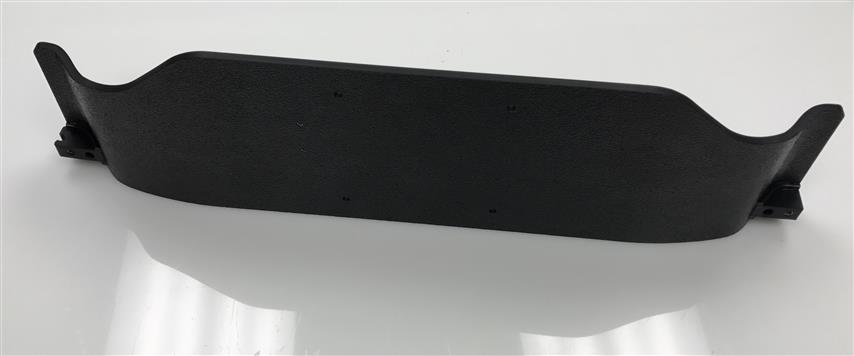
ABS
Acrylonitrile butadiene styrene, or ABS, is a versatile, widely-used thermoplastic polymer with countless uses: from automotive components to medical devices to musical instruments. In finely-powdered form, ABS can even be used in tattoo ink.
ABS is a terpolymer made up of 15-35% acrylonitrile, 5-30% butadiene, and 40-60% styrene; proportions vary by grade. The acrylonitrile content gives ABS its strength, the butadiene provides toughness, and the styrene imparts a shiny, impervious surface.
Advantages of ABS
- Excellent impact strength
- High strength and stiffness
- Select grades are FDA compliant for food contact
- Good machinability
Properties of ABS Plastics
ABS is perhaps best known for its toughness and impact resistance. Because it is easy to machine and readily accepts paints and adhesives, ABS is commonly used for part prototyping. Thanks to its relatively low melting temperature, it is also a popular material for 3D printing. ABS polymers exhibit high resistance to alcohols, alkalis, aqueous acids, concentrated hydrochloric and phosphoric acids, and oils.
Different grades of ABS may provide greater impact resistance, heat resistance, and toughness, though there is often a tradeoff of a reduction in other properties. Glass fibers and other additives can be included to further increase the material’s strength and raise its working temperature to as high as 176°F (80°C).
Contact Delmar Company for Precision Machined ABS Parts
Delmar Company are the plastic machining experts. We have extensive CNC milling, CNC routing, and CNC turning capabilities that enable us to produce high precision, custom-machined ABS parts that meet your exact design requirements.
Request a quote today or contact us to discuss your project.


